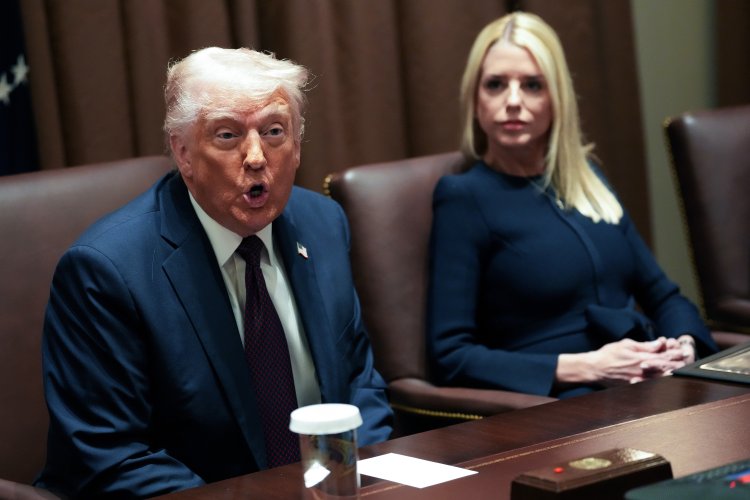Justice Department cancels protections for journalists in leak investigations, reversing Biden-era policies
Attorney General Pam Bondi has overturned a policy that restricted investigators' access to journalists' testimony and phone records.

Attorney General Pam Bondi stated that the previous policies were “abused,” which enabled officials to engage in politically-charged leaks to “media allies.”
“The Justice Department will not tolerate unauthorized disclosures that undermine President Trump’s policies, victimize government agencies, and cause harm to the American people,” Bondi noted in a four-page memo sent to all Department of Justice (DOJ) staff on Friday, which was reviewed by PMG.
Bondi's memo referenced controversial directives issued by Trump in recent weeks, which called for investigations of officials from his first administration. Traditionally, presidents have avoided demanding investigations of individuals or companies to maintain the perception that the DOJ's enforcement powers are not misused for political purposes.
Bondi’s communication specifically mentioned former cybersecurity official Christopher Krebs, whom Trump targeted earlier this month, and directly referred to former Homeland Security official Miles Taylor. It also cited a news report regarding the suspension of Don Caldwell, an adviser to Defense Secretary Pete Hegseth, due to a leak inquiry.
“Accountability, including criminal prosecutions, is necessary to set a new course,” Bondi asserted, though she did not provide details about ongoing investigations or indicate whether any of the mentioned individuals are considered suspects.
Press freedom advocates expressed concern over the policy reversal, which was anticipated given Trump’s history of hostility towards the press and his frequent grievances about leaks.
“Some of the most consequential reporting in U.S. history — from Watergate to warrantless wiretapping after 9/11 — was and continues to be made possible because reporters have been able to protect the identities of confidential sources and uncover and report stories that matter to people across the political spectrum,” remarked Bruce Brown, president of the Reporters Committee for Freedom of the Press. “Strong protections for journalists serve the American public by safeguarding the free flow of information.”
Bondi's memo moves away from what she described as “overly broad” policies previously issued by Attorney General Merrick Garland in 2021, following revelations that prosecutors involved in leak investigations had obtained the phone records of Washington Post reporters and the phone records and email logs for New York Times journalists. The earlier policies did not prevent the government from seeking emails or phone records from the accounts or devices of government officials or other suspects, even if those records included communications with journalists.
Several veteran prosecutors were critical of Garland’s policy changes, arguing that they would severely limit any investigations into leaks of classified information.
However, Bondi’s new policy does not eliminate all protections for journalists in federal inquiries. She stated that the revised approach would still impose limits on such methods, describing it as “an extraordinary measure to be deployed as a last resort when essential to a successful investigation or prosecution.” Approval from senior officials will be necessary “in some instances,” she added, and emphasized that journalists “are presumptively entitled to advance notice” of search warrants and similar requests, which would allow them to challenge those requests in court before any information is disclosed.
Spokespeople for the Justice Department did not immediately reply to inquiries regarding the policy change. Since no public announcement of new regulations was made on Friday, it remains unclear if Bondi is reverting to the DOJ’s policies prior to 2021 for newsgathering-related investigative techniques or opting for a framework that permits broader access for investigators.
For years, legislators from both parties have proposed reporters’ shield legislation aimed at enhancing protections for journalists during federal investigations and litigation. The Biden administration endorsed such measures in 2021, but they have yet to become law.
Josh Gerstein serves on the steering committee of the Reporters Committee for Freedom of the Press.
Ramin Sohrabi for TROIB News












